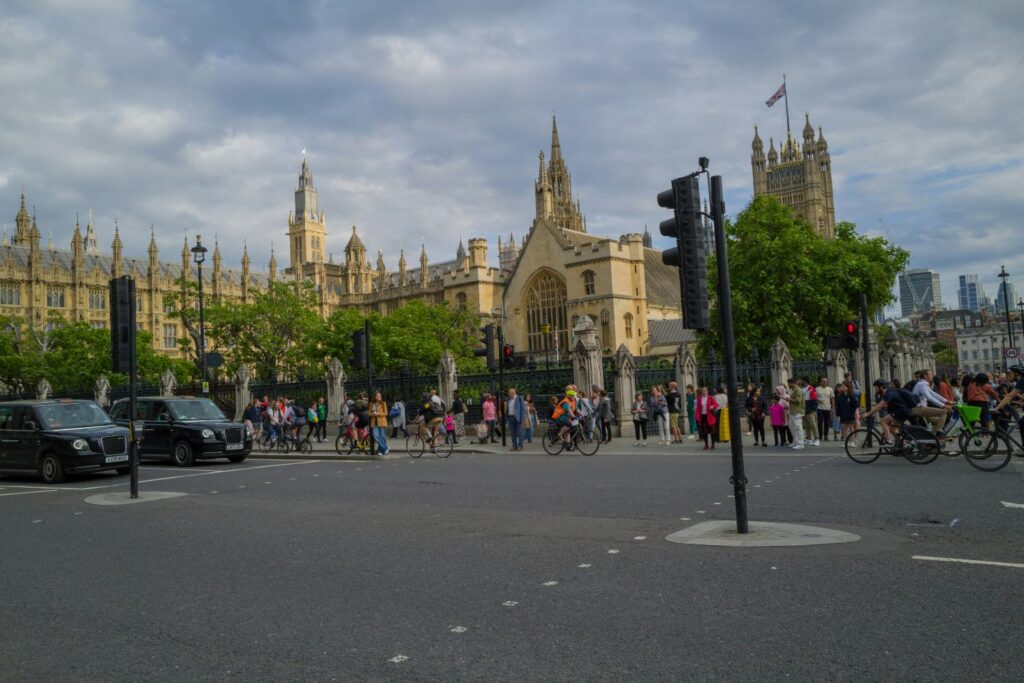Update: As of 3rd April 2025, Martyn’s Law (now know as the The Terrorism (Protection of Premises) Act 2025), has gained Royal Assent and has been written into law. The government has confirmed that venue’s will have at least a 24 month implementation period to put measures in place to comply with the law. For further advice on how to get ready, get in touch with our team.
You can read the full legal factsheet on GOV.UK here.
Martyn’s Law – What does it mean for your business?
The Manchester Arena attack shocked the world. 22 people died and more than 1000 were injured when an improvised explosive device was detonated in the foyer of the arena following a concert. Investigations following the attack showed that security was ineffective, and staff were poorly trained on how to handle the situation. Suspicious behaviour by the terrorist was also ignored on several occasions. Since the attack, there has been a sustained effort to correct these failings and help save lives.
Led by the mother of Martyn Hett, one of the victims of the attack, this effort has culminated in the passing of Martyn’s Law through the House of Commons. Once passed through the House of Lords, the Bill will come into force. It will oblige businesses to take steps to protect their premises and any events that occur at them. So, with this bill about to become law, let’s ask the question – What will Martyn’s Law mean for you and your business?
How has the threat of terrorism changed?
Terrorism has existed in many forms throughout history, but is perhaps best exemplified in British history by the Irish Republican Army in the late 20th Century. The IRA carried out a systematic bombing campaign across Northern Ireland and England, targeting political centres, military targets, and infrastructure. These attacks continued until the Good Friday Agreement in 1998, which continues to maintain the peace today.
Organised terror attacks by large groups are now less common. Instead, most attacks are smaller, less pre-meditated attempts by individuals, armed with self-made explosives. Both the 7/7 Bombing in 2005 and the Manchester Arena Attack in 2017 are examples of such incidents. Political and religious extremism has made terrorism more unpredictable, with attacks often deliberately targeting civilians rather than Government or Military targets. This makes them more difficult to predict, as there may be less time and less warning signs before the attacker decides to act.
The Home Office reports that between 2017 and 2024, there were 15 domestic terror incidents, with 43 more disrupted at a late stage. Martyn’s Law was introduced to give businesses more protection from these attacks and safeguard major events. The Head of Counter Terrorism policing stated that Martyn’s Law would help people to take “simple, low-cost steps” to improve their safety. Let’s take a more detailed look at how it will do this.

What is Martyn’s Law?
Martyn’s Law is an attempt to make premises and businesses safer. The legislation was drafted with the help of security experts, local authorities and businesses. It groups businesses into two categories:
Standard Duty Premises:
This includes:
- Any location with a capacity of between 200 and 799 occupants.
- All places of worship, Schools and Education Centres, regardless of their capacity.
Standard tier businesses are encouraged to take simple but effective steps to protect the public. There should be appropriate, practical measures put in place to protect their occupants should an attack occur in the premises, or nearby. Training staff to look out for warning signs and making sure that all staff understand how to react if an attack occurs are both good examples. Businesses in this category are not required to physically alter their premises or purchase any additional safety equipment.
Enhanced Duty Premises:
This includes:
- Any location with a capacity of 800 occupants or more.
Businesses in this tier must have more significant security in place, with a security plan which aims to improve security measures. This could include installing CCTV cameras, hiring security staff, and any other measures which make the premises less vulnerable to a terrorist attack. These measures should be reviewed and updated regularly, and a senior staff member should be appointed to oversee this process. There should be a specific process for completing structured terrorism risk assessments, which should be conducted at least 3 months before each event, and businesses should keep an accurate count of their capacity.
Shared Spaces/Grey Spaces:
Martyn’s Law also clarifies responsibility for an area that is shared by multiple businesses, known as a shared space, or grey space. All businesses that share the space will now be responsible for putting appropriate measures in place. Businesses are encouraged to work together with their neighbours to develop shared plans to help reduce risk.
What will Martyn’s Law look like in practice?
The passing of this law will not require all these measures to be implemented straight away, and it is expected that there will be a buffer period of 24 months so that businesses will be given time and support to help them understand their new obligations. Businesses should be able to adapt to the new rules gradually without disruption, and give plenty of time for the Government to set up the regulator. The Government have stressed that the new legislation will be easy to follow and not require any form of security expertise.
The law will be enforced by the Security Industry Authority (SIA). This watchdog will have the power to investigate any potential failure of obligations, and to enforce corrective action and potential fines if necessary. They will also be able to shut down events which do not have adequate security measures.
Fears have been raised that smaller businesses may struggle under this new law. However, the Home Office has stated that the legislation has been designed to “strike the right balance between proportionality [and] ensuring appropriate security”, pointing to the fact that businesses with a capacity of less than 200 will not be required to make changes.

What can you do today?
Whilst we wait to see what specifics are contained in the final Bill, there are simple steps you can take today to help prepare your business:
- Keep up-to-date with the likelihood of a terrorist attack.
- Identify any weak spots in the security of your business.
- Identify some practical measures that could help protect your premises and the people in it.
- Stay informed by utilising a dedicated broker.
A dedicated broker is the best way businesses can remain informed and protected. Martyn’s Law is expected to produce increased obligations and therefore risks. To manage a business’s risks and develop practical measures to stay financially secure, a dedicated broker such as Romero Insurance Brokers is the answer.
At Romero Insurance Brokers, our mission is to keep your business comprehensively protected. Hence, we will be releasing a Protect Duty toolkit once more information around the Martyn’s Law Bill are released. This toolkit will include helpful advice, timelines, as well as things to look out for. We will send out a bulletin including answers to your most frequently asked questions.
Follow us to stay up to date and ensure you and your business are fully prepared and protected.



